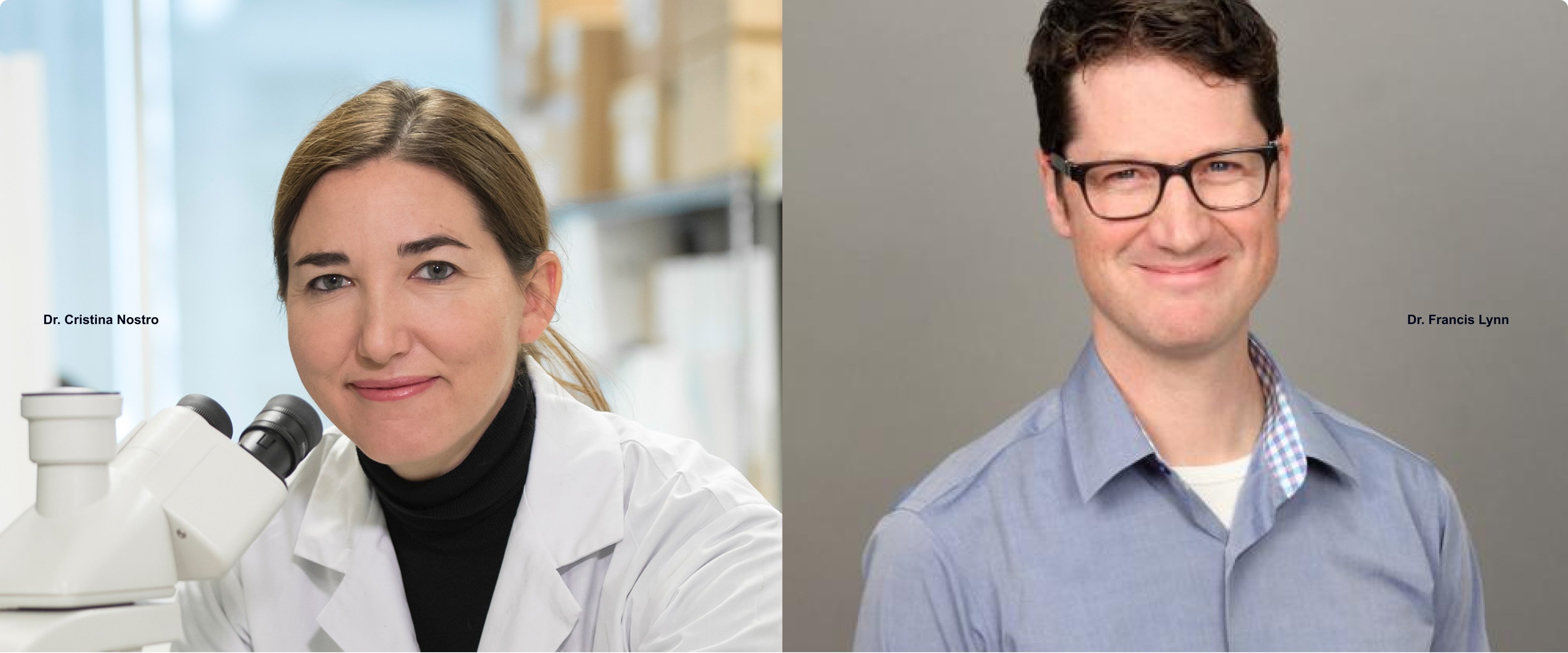
JDRF and CIHR announce new grants to accelerate stem-cell based therapies for T1D
To mark November’s National Diabetes Awareness Month, JDRF was thrilled to announce a new investment for a total of $6 million ($3 million from each partner) to support two Canadian research teams as part of the JDRF-CIHR Partnership to Defeat Diabetes to help accelerate development of stem cell-based therapies for type 1 diabetes (T1D).
These new studies are aiming to make possible the reality of restoring the body’s ability to make insulin. T1D results in the dysfunction, damage or loss of pancreatic beta cells that produce insulin in our bodies. Stem cells show great promise as a source of insulin-producing cells that could be transplanted to replace dysfunctional, damaged or lost pancreatic beta cells and provide a new source of insulin.
Canada has a remarkable legacy of leading discoveries in this area. Stem cells were discovered in Toronto in 1961 and Canadian researchers remain among world leaders in stem cell research. In 2000, a team in Edmonton led by Dr. James Shapiro pioneered a protocol for transplantation of pancreatic islets (the part of the pancreas that contains insulin-producing cells) that enables insulin independence in many patients who undergo the procedure. However - donor scarcity, poor islet survival after transplant, the need to optimize the transplant site and the need for life-long immunosuppressive treatment to prevent transplant rejection mean this treatment is only accessible to a handful of people with T1D.

The goal is now to apply advances in stem cell science to enable cell replacement therapy as a cure for anyone with T1D.
The two research teams are being led by Dr. Maria Cristina Nostro, Senior Scientist at the McEwen Stem Cell Institute at University Health Network and Associate Professor at the University of Toronto, and Dr. Francis Lynn, Associate Professor with the Faculty of Medicine at the University of British Columbia and an Investigator at BC Children's Hospital. These teams will build on Canada’s demonstrated research excellence and leadership in clinical islet transplantation, stem cell biology, diabetes, immunology and genetic engineering to accelerate stem cell-based therapies for T1D. Teams will work in collaboration with other Canadian researchers to tackle some of the biggest scientific challenges that impede our progress in this area and move us closer to a future where people with T1D no longer rely on insulin therapy.
Advances made by these research teams could not only transform the lives of thousands of Canadians living with diabetes, but also greatly reduce the tremendous economic and health burden that diabetes places on Canada today. This research may also ultimately benefit people with insulin-requiring type 2 diabetes (up to 30% of cases), further broadening the potential impact.
JDRF is proud to support these two teams, who will carry out exciting and ambitious cell replacement research and bring us closer to our goal of a world free of T1D. Thank you to the incredible donor support we have received to-date towards these projects.

